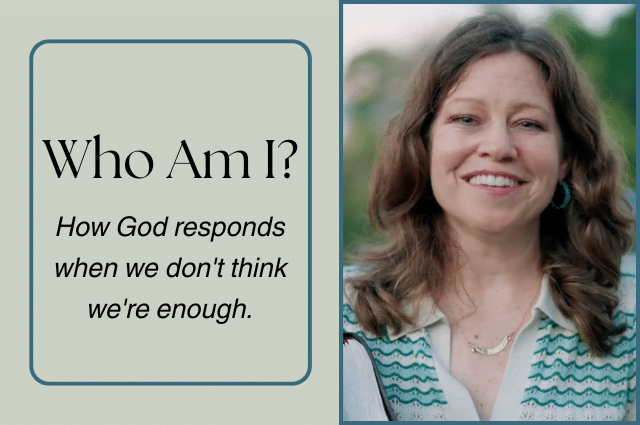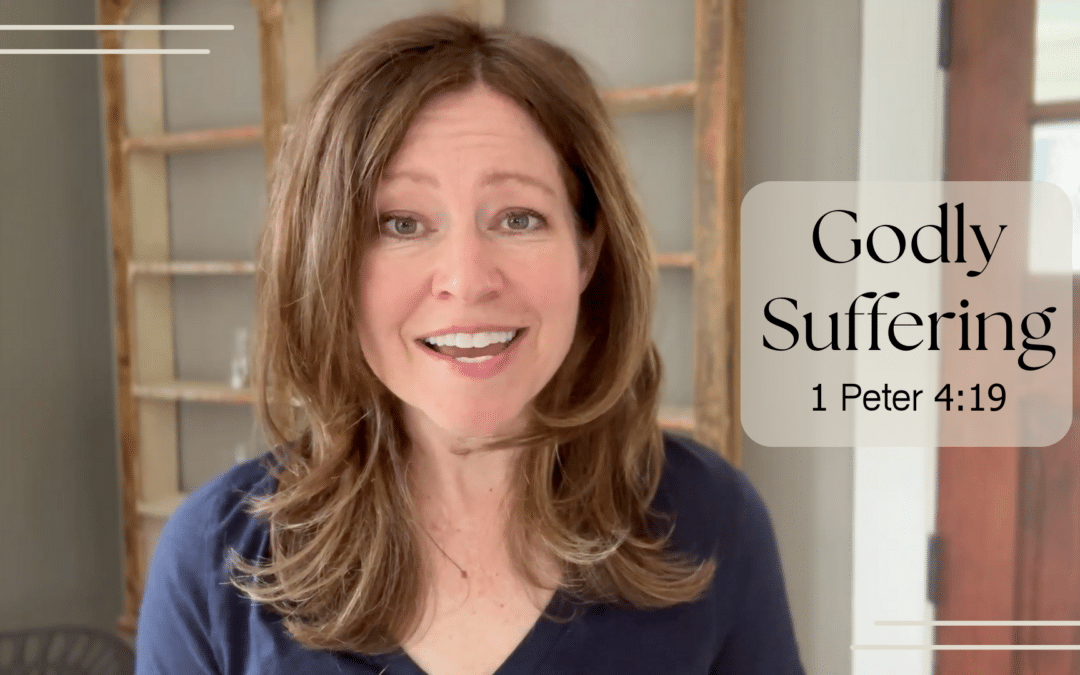This month I'm bringing you some encouragement...

The Unexpected Joy of Loving Your Neighbor
To set the scene, we’re jumping into a story where my friend April was deciding whether or not to buy a computer for a family in our community who couldn’t afford one.
The Inconvenience of Loving Your Neighbor
“Ok, here’s my dilemma…” April looked down for a second and then slipped me a nervous smile I know like the back of my hand. “What if I help them with the computer and then they start needing me?”
“Well, heaven forbid you help someone who might need you.”
“But you know what I’m saying? I mean, what if she starts calling me for things and it all gets inconvenient.”
This was a reasonable concern. I understood. It’s one thing to enjoy helping someone on a definitive, short-term basis where the output is minimal and the gratification is immediate. It’s another thing altogether, so entirely in its own category, to actually engage in relationship. It’s the difference between a quick act of service and actually sharing your life, which is what the gospel requires of us—which is also what has caused me, at times, to panic.
Our conversation took me back to an afternoon on the river when I pulled up my chair next to John [the one who first invited me to the Amazon] and rested my feet on the sky-blue slats of the Discovery while the thick jungle with endless hidden treasures and possibilities rolled by. Having John next to you was like having a bedside tome of yarns, wit, and wisdom. He saw things through an interesting lens, and he could thread a story that kept you inching farther and farther toward the edge of your seat until you’d almost slid off either from laughter, disbelief, or both. He could also be comfortably quiet though, occasionally breaking the silence with a thought or insight you rarely saw coming.
“You know,” he mused, “God sent me to Brazil and wrecked my retirement plans.” I knew that before visiting the Amazon he’d been considering his future as a post-record company executive, dreaming of places where he and Juliet could travel and vacation, sipping the rest of their years through a silver straw. “But I’m so glad He did,” he continued. “You know, how many beaches can you lie on? How many games of golf can you play before it’s just meaningless?”
The Convenience of Loving Someone Else’s Poor
I was going to realize that Jesus’ specific call to love my neighbor was going to be, in some ways, more difficult than loving the people across the ocean with the exotic wildlife. Loving the poor for a week at a time with your family and best friends on an exquisite adventure is rather different from slogging through the complexities and choices that surround the suffering and needy who dwell in your own community. As Mary Katharine once put it to me, it’s almost always easier to take care of someone else’s poor. For one thing, our own poor have problems that remind us a troubling amount of ourselves. And for another, they’re always right there—you don’t get to fly home and leave them after a week.
…
I remember when the founding director of a local organization for women newly released from prison asked me if I’d like to teach a weekly Bible study to half a dozen women now living in a facility near my neighborhood. It’s one thing to teach on the weekends as part of your living, listen to women, pray for them, and then jump on a plane home. It’s another thing entirely to offer yourself to people with all manner of addictions and problems and complaints who might also call you the following afternoon to chat. I was afraid of what giving up a night of the week might require of me and wondered if I had the capacity for more relationships. But when I really examined my life, while I was a good friend, pursuing the things of Christ, living uprightly as I understood it, I couldn’t say that a significant amount of my time was spent pouring into the lives of others, not to mention the poor. But after witnessing the great need in the Amazon, how could I turn my back on a group of women equally in need, only two miles away, toward whom I felt the Lord nudging my heart?
I might have never put it like this, but in some ways, I’d been living on an island with those who looked like me, pretty much voted like me, shared my same interests, ate at the same restaurants, sang similar worship songs, and made comparable incomes. Every so often, we’d cross the bridge via a church outreach to the peninsula of prisoners or the isle of drug addicts, maybe the reef where the homeless were trying to stay above water. We’d genuinely serve and love these communities of sufferers and societal outcasts, but soon we’d be back in our homes, snuggled into our comforts, going on with our lives. I was happy to serve, just so long as it was an occasional activity, an accessory to my faith and not a primary characteristic of it.
I thought about the jungle pastors I’d met along the river who thought nothing of rowing their canoes for several days just to deliver a creel of fish to a widow or preach a sermon or lay their hands on a sick child. They wouldn’t have even had a category for our definition of “inconvenient.” For them, oaring their families across choppy waters on their way to a church service through a blinding rainstorm while a water cobra circled their canoe is inconvenient.
[click_to_tweet tweet=”For them, oaring their families across choppy waters on their way to a church service through a blinding rainstorm while a water cobra circled their canoe is inconvenient.” quote=”For them, oaring their families across choppy waters on their way to a church service through a blinding rainstorm while a water cobra circled their canoe is inconvenient.”]
April had seen everything I’d seen in the Amazon, so when she encountered a needy woman in her own neighborhood, she was able to recognize her responsibility more clearly. She realized that the very thing she was terrified of, the very thing I was terrified of— being inconveniently needed—happened to be Jesus’ second most central command: love your neighbor as yourself. He wasn’t asking us to fix everyone’s problems, but He was asking us to give our hearts, or as the apostle Paul put it so poignantly to the Thessalonians, “Because we loved you so much, we were delighted to share with you not only the gospel of God but our lives as well” (1 Thess. 2:8).
[click_to_tweet tweet=”“Because we loved you so much, we were delighted to share with you not only the gospel of God but our lives as well” 1 Thessalonians 2:8″ quote=”“Because we loved you so much, we were delighted to share with you not only the gospel of God but our lives as well” 1 Thessalonians 2:8″]
When it came to being a friend to the poor in my community, I was afraid of the same thing April was. I was happy to minister overseas because there’s this measure of novelty while you’re there and a safe distance when you’re gone. But befriending the sick, suffering, and spiritually needy in my daily environment is neither novel nor safe. It’s just hard. Essentially, I wanted to help people but only if I didn’t have to get all tangled up in ongoing relationship. I didn’t want people close to home needing me, calling me. And it wasn’t just what I was afraid to do; it was what I was afraid to give up. It can be painful relinquishing a few precious comforts while making time to serve. After agreeing to teach the Bible study at the home for recovering addicts, I freely admit I wasn’t happy that it cut into one of my favorite nights to be with friends. You’d think I’d committed to leading a small group in Afghanistan the way I coaxed myself out the door, begging God to help me while I drove all of seven minutes away.
April ended up buying the computer for Rachel and her family, and they did end up needing her, and eventually they needed me, too. But what April and I soon discovered was that, in some ways, we’ve needed them more.
The Responsibility of Loving Your Neighbor
I couldn’t have understood this more clearly than the day I was throwing a football in my front yard with six-year-old Randy Jr., the third of Randy and Rachel’s four children. Suddenly the most perplexing riddle hit him, and while winding up for another big pass, he yelled, “Hey! How come you live in a house with three bedrooms and you’re just one person”—I watched the ball sail through the air feeling like something more than a ball was coming—”and we live in a house with three bedrooms and we have six people?” Well, now, this was a very good question. Randy Jr. was doing the math, and the number of people in each home compared to the number of rooms wasn’t totaling up to anything close to fair, or even practical.
…
As I tossed the football with Randy Jr., I realized no one else in my life could have asked this question in a way that so convicted me as this little second grader with his crooked glasses and high-water pants. Through his simple yet profoundly complex question he reminded me that there’s not so much an answer as there is both a great truth and a sacred responsibility. The truth is that I was once a slave, yet because of God’s grace I am now awash in freedom. But this freedom spawns responsibility, which requires giving freely of my time and myself.
It’s become increasingly clear to me how much more God wants for me, how He longs for me to experience the kind of joy Paul wrote about when he said to the Thessalonians, You are my joy and crown.
[click_to_tweet tweet=”It’s become increasingly clear to me how much more God wants for me, how He longs for me to experience the kind of joy Paul wrote about when he said to the Thessalonians, You are my joy and crown.” quote=”It’s become increasingly clear to me how much more God wants for me, how He longs for me to experience the kind of joy Paul wrote about when he said to the Thessalonians, You are my joy and crown.”]
Whether I was giving myself to the river people of the Amazon, throwing the football with Randy Jr., or getting to know the brave women facing their addictions, I’d been discovering unexpected joys. Unexpected crowns. Just like God had wrecked John and Juliet’s retirement plans, He was wrecking some of my American Dream. But in John’s words, “You know, how many beaches can you lie on?”

Who Am I?: How God responds when we don’t think we’re enough.

Encouragement in Suffering
It's been a busy few months for me, and I'm sure...

Brand New Work: From Mud to Miracles
With Easter being particularly late this year,...

Look for Life this Lent
I recorded a short Lenten devotion for you to...

Between Promises
Are you in a season of waiting? An in-between...


